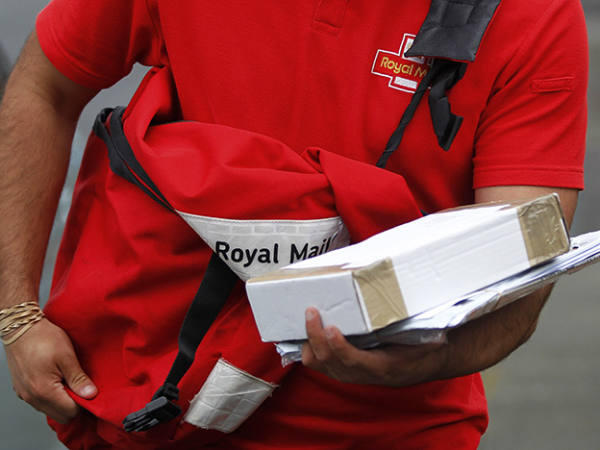Last week a number of commercial property funds prevented investors from taking out and putting in money, or rebased their pricing, after a deluge of withdrawal requests following the UK's vote to leave the European Union (EU). As well as raising questions about the prospects for commercial property it has also raised questions about how suitable open-ended funds are for getting exposure to this asset.
Private investors can also access commercial property via investment trusts and these have not faced the same problems as open-ended funds. This is because investors cannot ask the managers of property investment trusts for their money back: if you want to dispose of an investment trust you have to sell its shares on the secondary market.
But because of the problems with open-ended funds and concerns over UK commercial property, trusts focused on this asset have moved from premiums to discounts to net asset value (NAV), or experienced discount widening. This is in contrast to the double-digit premiums to NAV some of these trusts have at times traded at in recent years.
When a trust falls to a discount it can present a bargain, for example, if the trust and its assets are essentially good and the share price fall is just because of market sentiment. But whether this the case with commercial property investment trusts is far from clear.
The UK's decision to leave the EU has been accompanied by a significant deterioration in sentiment towards UK commercial property as investors anticipate a reduction in investment demand and a weakening of occupational demand.
But analysts at Winterflood point out that UK commercial property capital value growth is still below its 2007 peak before the financial crisis. And a number of analysts argue that the situation is very different to 2007-08. UK banks are in a stronger position and debt levels among commercial property investment trusts are generally much lower than then. "And having taken advantage of the opportunity to lock in attractively priced long-term debt, none of the listed closed-ended property funds have any medium-term refinancing requirements," adds Winterflood. "As such we would not expect them to become forced sellers as a result of debt covenants."
Property investment trusts experienced severe share price falls and swung out to high double-digit discounts to NAV in 2008, although analysts do not expect them to widen as far this time. "Brexit is nothing like as severe as the financial crisis," says Tim Cockerill, investment director at wealth manager Rowan Dartington. "This is a UK-centric problem - there is not a possibility the whole financial system will disintegrate."
The recent weakening of sterling may increase UK property's relative attractiveness to overseas investors, while if UK interest rates fall further this year investors may be attracted to commercial property trusts as a source of income.
Winterflood notes that over the past 10 years these trusts' annual income returns have remained relatively stable. "Given their focus on income and limited development exposure, the listed closed-ended property funds should be well placed, and we would expect their dividend yields to provide support to share prices," says Winterflood. "While we would assume property values will fall, we think that these funds are generally well placed to weather more difficult conditions."
Innes Urquhart, an analyst at Winterflood Securities, adds that these trusts portfolios average loan-to-value ratios are reasonable.
Colette Ord, director, investment companies research at Numis Securities, believes there is some value among these trusts while at a discount to NAV given their income and yields. "And most of these are fully covered from earnings," she says. "If you just want some income they still offer value."
Most of these trusts are on wide discounts relative to their history, with some of them having traded at premiums to NAV even just a few weeks ago.
There are concerns about certain areas of commercial property, for example London offices, if there are redundancies or companies choose to relocate abroad as a result of Brexit. However, the broad commercial property investment trusts tend to be fairly diversified across sectors and regions, and some have very little London exposure.
Reasons to hold fire
But before you embark on what may look like bargain buying, bear in mind that the discounts to NAV on commercial property investment trusts are not as wide as they were at the end of last week, so they are not as cheap.
Many commercial property trusts have yet to report their end of June NAVs and while valuations have not yet moved much so far this year, as there is not much post-Brexit vote transactional evidence, it is too early to assess the situation.
Winterflood believes that commercial property valuations will fall, which could mean the trusts' NAVs will go down. If this happens then they could return to premiums - but not because their share prices have appreciated. So if you buy a trust at a discount just now, you could in effect be buying at a premium. A bargain is only a bargain when you buy something for less than it is worth, or what its price might be in future. The share prices of these trusts could also fall again and the discounts could move back out: considerable share price volatility is likely - at least over the short term.
A number of open-ended funds need to sell commercial property to meet redemptions, and if a lot comes onto the market it could push down the prices of this asset and the valuations of investment trust portfolios. It could take some time for these funds to make their sales, so uncertainty on this is likely for a while - as well as on what the effects of leaving the EU will be.
Commercial property has also had a strong run so, regardless of Brexit, some commentators think the level of capital appreciation seen in recent years has peaked and that returns going forward will be driven more by rental yields.
The CBRE Monthly Index for commercial property reports that rents across the UK grew by 0.2 per cent in June, matching the trend for the year to date. Capital values grew by 0.1 per cent over the month, a drop on 0.2 per cent in May. Over the first half of 2016 rental value growth hit 1.1 per cent, lower than the 1.7 per cent recorded in the same period of 2015. Capital values grew 0.6 per cent in the first half of 2016 - considerably lower than the 4.1 per cent for the first half of 2015.
"These figures reflect CBRE valuations carried out in the days immediately following the referendum vote, but July's monthly index will give a much clearer indication of how monthly-valued assets have been affected by the uncertain environment for commercial property in the aftermath of the Brexit decision," says Miles Gibson, head of research at CBRE UK.
And commercial property is not necessarily that good for diversifying your portfolio. "In the past property has been pretty correlated with equities," says David Liddell, chief executive of online investment service IpsoFacto Investor. "When the latter turns down commercial property can turn down even more."
He also argues that it is unclear as to whether the UK will go into recession following the vote for Brexit, and "broad based commercial property trusts are a geared play on the state of the UK economy. It's a time to be cautious - not adventurous."
If you do decide to buy into property investment trusts only do so if you have a long-term investment horizon and high risk appetite, as the turbulence and uncertainty could go on for some time. And only put in a small amount of your money.
If commercial property doesn't fit in with your investment objectives or upsets the overall balance of your portfolio then don't buy it - regardless of the price.
No ideal way to enter The main advantage of investment trusts when investing in illiquid assets is that they are not forced to sell assets, and their managers can take a long-term view, ride out periods of volatility and wait till they can sell assets at a profit. Investment trusts can gear (take on debt) to take advantage of additional investment opportunities so they could, for example, in the months ahead buy good assets from distressed sellers at cheap prices. However, if a trust is highly indebted this can exacerbate losses in falling markets. They can offer higher yields and can make better returns than open-ended property funds as they do not have to hold cash to meet possible redemptions. Holding cash can make funds lag in rising markets. However, investment trusts are listed on the stock market and in times of distress or uncertainty they can experience severe falls in their share prices, such as during the 2008-09 financial crisis and over the past couple of weeks. They can swing out to very wide discounts to NAV: in December 2008, for example, the sector weighted average discount for UK direct property investments trusts went as wide as 49 per cent, with some individual trusts on discounts in excess of 70 per cent, according to Winterflood. Even if their underlying assets are doing well, if market sentiment is negative investment trusts' share prices can fall and as an investor it is the share price return you get - not the NAV. It also means these trusts can be more correlated to equities than property, whereas open-ended funds may more closely reflect the property market. In recent years property investment trusts have traded at high premiums to NAV but this makes them expensive and has meant they have had further to fall in the recent volatility. They also typically have higher ongoing charges than open-ended funds, well in excess of 1 per cent and sometimes higher. Open-ended property funds can be bought from platforms for less than 1 per cent. Property investment trusts' share prices are more volatile than open-ended property funds. For example, between the end of May and early June this year Standard Life Investments Property Income Trust (SLI)* fell around 20 per cent but then recovered significantly, having been at around 68p on 6 July but as high as 79p on 12 July - bigger moves than those seen with open-ended funds, points out Mr Cockerill. Although investors wanting to dispose of an investment trust can sell its shares, when many people sell them it depresses the share price and the trust can swing out to a very wide discount to NAV. So even though you can sell, this might be at a much lower price than you bought, meaning you might not want to sell so are in effect trapped - like investors in a gated open-ended fund. |
What to buy
If you do decide to buy, when choosing a trust look at its level of gearing as those with the highest levels tend to be the ones that move to the widest discounts. Also check the cost because expensive debt eats into returns, and see how long it is before the trust needs to refinance.
Property investment trust gearing
| Trust | Potential | Cash | Exposure |
| AEW UK | 106 | 6 | 112 |
| Custodian REIT | 100 | 0 | 100 |
| Drum Income Plus | 100 | 0 | 100 |
| Ediston Property | 100 | 0 | 100 |
| F&C Commercial Property | 157 | -29 | 128 |
| F&C UK Real Estate Investment | 141 | -11 | 130 |
| Industrial Multi Property | 378 | 7 | 385 |
| Picton Property Income | 153 | 5 | 158 |
| Schroder Real Estate IT | 134 | 6 | 140 |
| Standard Life Investments Property Income | 122 | 4 | 126 |
| Tritax Big Box | 129 | -3 | 126 |
| UK Commercial Property | 101 | 20 | 121 |
| Average | 143 | 0 | 144 |
Source: Winterflood as at 13 July
Adrian Lowcock, head of investing at AXA Wealth, suggests looking at the average length of the tenants leases, with longer ones preferable as they protect the rental income stream. The quality of the property is also important as prime locations can attract tenants.
Winterflood has recently rebalanced its model portfolio of investment trusts, removing Standard Life Investments Property Income (SLI)* and Picton Property Income (PCTN)*, adding in their place F&C Commercial Property (FCPT)*.
"Given the quality of the fund's portfolio, its limited exposure to City of London offices, its strong tenant profile, and its relatively low level of gearing, it should be well placed to weather the current uncertainty," comments the broker.
The trust pays monthly dividends and was on a yield of 4.9 per cent as at 12 July. It has maintained its dividend since launch, although as of December 2015 dividend cover was 81 per cent.
"While the outlook for rental growth is now more challenging, we would still expect dividend cover to improve as a result of lower interest costs, the letting of existing voids, and the deployment of capital into income accretive investment opportunities," continues Winterflood. "Importantly, with a net loan to value ratio of only 19.2 per cent, the fund also retains significant financial flexibility and has the ability to take advantage of opportunities that may arise as a result of current market conditions."
This trust has some exposure to London but mainly in the West End. Its largest holding is retail asset St Christopher's Place just off Oxford Street, which has been a key contributor to performance and has potential for further asset management.
However, Mr Cockerill says that while Standard Life Investments Property Income Trust's share price has been volatile if the discount widens again it could be worth putting in a small amount of money. "It offers a good yield and has a proven manager, and I don't think anything will change in those respects," he says.
Having traded at a premium to NAV until a few weeks ago it was on a discount to NAV of 3.4 per cent as at 13 July. It has a dividend yield of 6 per cent and has made some of the strongest NAV returns in its peer group. It has recently disposed of three assets for £12.35m, 3 per cent ahead of the 31 March valuation. The proceeds will be used to reduce the level of borrowing under the revolving credit facility, which Numis says was £35m drawn and will reduce the overall loan-to-value ratio from 29.5 per cent at 31 March to 26.1 per cent.
Mr Lowcock highlights Schroder Real Estate Investment Trust (SREI), which has one of the widest discounts among direct property investment trusts, at 17.2 per cent, much wider than its 12-month average discount of 3.5 per cent. It yields 4.9 per cent and its dividend is 100 per cent covered.
Schroder Real Estate's NAV returns have beaten the average direct UK property trust over one, three and five years. Its portfolio has a relatively low average loan to value ratio of about 28 per cent.
Direct UK property investment trusts
| Trust | Discount/premium to NAV (%) | 12-month average discount/premium to NAV (%) | Yield (%) | 1-year NAV return (%) | 3-year cumulative NAV return (%) | 5-year cumulative NAV return (%) | 1-year share price return (%) | 3-year cumulative share price return (%) | 5-year cumulative share price return (%) | Ongoing charge (%)* |
| AEW UK | -5.6 | +2.5 | 8.7 | 5 | na | na | -6 | na | na | na |
| Custodian REIT | +3.1 | +5 | 6.0 | 8 | na | na | 2 | na | na | na |
| Drum Income Plus | +8.5 | +17.8 | 5.3 | -1 | na | na | -24 | na | na | na |
| Ediston Property | -8.0 | +0.2 | 5.6 | 9 | na | na | -5 | na | na | 1.40 |
| F&C Commercial Property | -8.3 | +1.2 | 4.9 | 9 | 58 | 81 | -11 | 25 | 55 | 1.18 |
| F&C UK Real Estate Investment | -12.0 | +0.6 | 5.7 | 9 | 67 | 76 | -7 | 38 | 53 | 1.82 |
| Industrial Multi Property | -43.4 | -50.6 | 0.0 | 10 | 16 | -18 | 173 | 418 | 25 | 16.57 |
| Picton Property Income | -12.0 | -4.0 | 4.9 | 14 | 83 | 68 | 0 | 65 | 91 | 2.82 |
| Schroder Real Estate IT | -17.2 | -3.5 | 4.9 | 10 | 62 | 69 | -10 | 29 | 87 | 2.73 |
| Standard Life Investments Property Income | -3.4 | +4.9 | 6.0 | 12 | 75 | 83 | 1 | 54 | 71 | 1.49 |
| Tritax Big Box | +3 | +6.3 | 4.7 | 10 | na | na | 17 | na | na | 1.01 |
| UK Commercial Property | -10.5 | -2.2 | 4.8 | 6 | 48 | 53 | -12 | 16 | 27 | 1.49 |
| Average | -8.8 | -1.8 | 5.1 | 8 | 58 | 59 | 10 | 92 | 58 | |
| FTSE Real Estate Investment & Services Index | -21 | 4 | 49 | -21 | 4 | 49 | ||||
| FTSE All-Share Index | 3 | 16 | 41 | 3 | 16 | 41 |
Source: Winterflood, as at 13 July & *AIC/Morningstar









